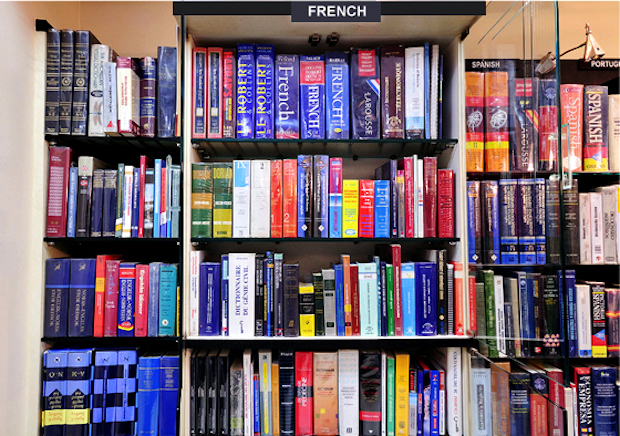Les nouveaux mots pour 2016 devoilés
Every year, new words are added to dictionaries around the world. Normally, these words are added due to new technological advances or cultural phenomena that describe what life is like in this new year.
In France, it’s not only verbs, adjectives, nouns, and adverbs that are added, but also proper names.
This is an honour that shows that a person has achieved a certain amount of fame and recognition. For 2016, the people to be included in French dictionaries are: the philosopher Bernard Henri-Lévy, the patissier Pierre Hermé, the French actor Pierre Richard, and the British actor Michael Caine.
According to this article, there are two requirements for inclusion in the popular French dictionaries, Le Petit Rousse and Le Petit Robert:
“Chaque nouvelle entrée a dû respecter, comme pour les éditions précédentes, l’un des deux critères suivants: être populaire et souvent repris dans les médias mais aussi être en rapport avec l’actualité sans risquer de disparaître rapidement.”

Here are some more words to be included for 2016 (some are self-explanatory):
selfie
vegan
boloss(e) (slang – an insult meaning that someone is silly or stupid)
baltringue (slang – a coward)
sape (slang – clothes)
And some expressions:
partir en cacahuète (“going peanuts,” means that something is going wrong/badly)
tendu comme un string (“tight as a string,” means someone is very stressed)
This article beautifully explains the importance of and the reason for the inclusion of some of these new words and expressions:
“Ces dictionnaires se veulent aussi le reflet de leur société, parfois même de l’actualité (c’est sans doute pourquoi Le Robert admet désormais le terme de "zadiste")"
"Ils suivent aussi une tendance, comme, par exemple la féminisation des noms. Au sein de ces rédactions du Larousse et du Robert qui se penchent chaque année, comme dans un conseil d’administration, sur l’utilité ou non d’intégrer un nouveau mot, on nous a affirmé que c’est suivre l’usage que de féminiser car il faut tenir compte du fait que de plus en plus de femmes accèdent aux postes traditionnellement tenus par des hommes"
"Tous deux utilisent ce qu’ils appellent une "banque de mots" tirés des journaux ou des livres, et leurs choix sont guidés par les relevés d’occurrences engrangés par leur observatoire de la langue française contemporaine”.

Blog submitted by: David at The French Property Network - Cle France.
This blog was originally posted on The French Language Blog pages.